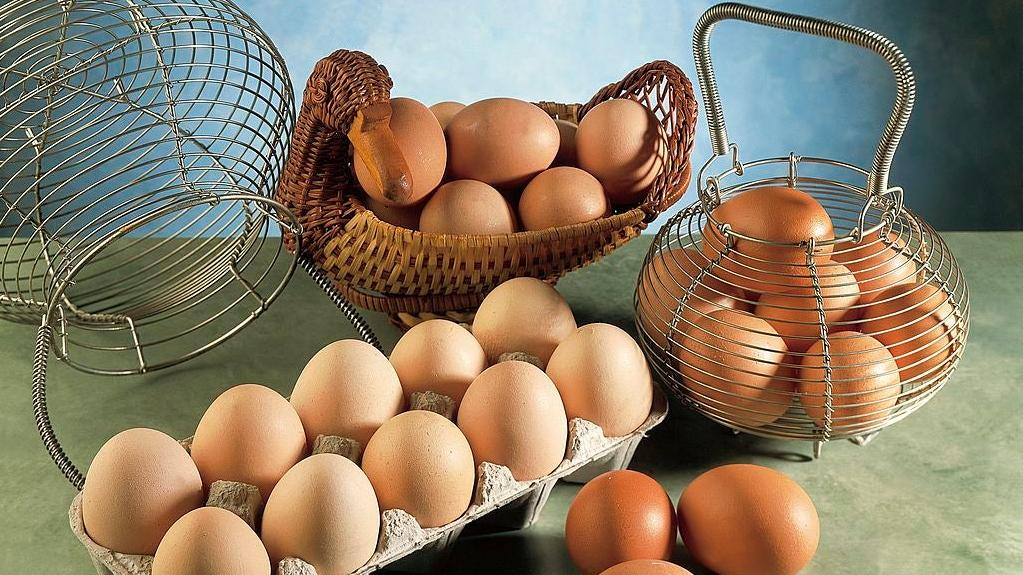There Is One Correct Place To Store Eggs Inside Your Fridge
No, it’s not that little cubby in the door specifically designed for eggs.
When you bring your eggs home from the grocery store, where do you usually store them in your fridge? Most people have that little compartment in their refrigerator door with the egg-shaped divots, so that would seem like the natural spot. But because nothing in life is that simple, Best Life explains that the door is not the smartest place to keep them.
Why? Because that part of the fridge is prone to temperature fluctuations, which could potentially cause issues with the eggs. When you open and close the refrigerator, warm air from your kitchen flows inside, passing over the door shelving, and takes a while to cool back down. That also means that temperatures inside the fridge increase with more frequent peeking—which, in my case, is a common occurrence due to boredom. I'm sure some of you feel me.
Instead, experts recommend you place your eggs toward the back of the middle shelf, where temperatures are more stable (because the warm outside air doesn't blast that area as much). Fortunately for me, this is typically where I put my eggs anyway, because I don't have an egg cubby in the door of my fridge. You'll also want to keep the eggs inside the carton, because the cartons keep the eggs insulated from temperature changes. Besides, who wants to keep loose eggs in their refrigerator? Break one egg inside there and your day is probably ruined.
Some people store their eggs on the counter, but it's only safe under certain circumstances. Here in the United States, you'll need to store your eggs inside the refrigerator, as the washing process that all mass-produced eggs are subjected to strips them of a valuable thin exterior layer called the cuticle. The cuticle supplies a natural protective layer that helps shield the contents from threats like salmonella. (Read our full explanation on unrefrigerated eggs here). Most other countries sell the eggs as-is, without going through the washing process, so consumers are free to keep their eggs out at room temperature with no problem.
If you're still worried about the freshness of your eggs, don't worry: we've got you covered. Check out our guide on how to tell whether or not your eggs are still fresh, and enjoy your breakfast scramble with some peace of mind.
